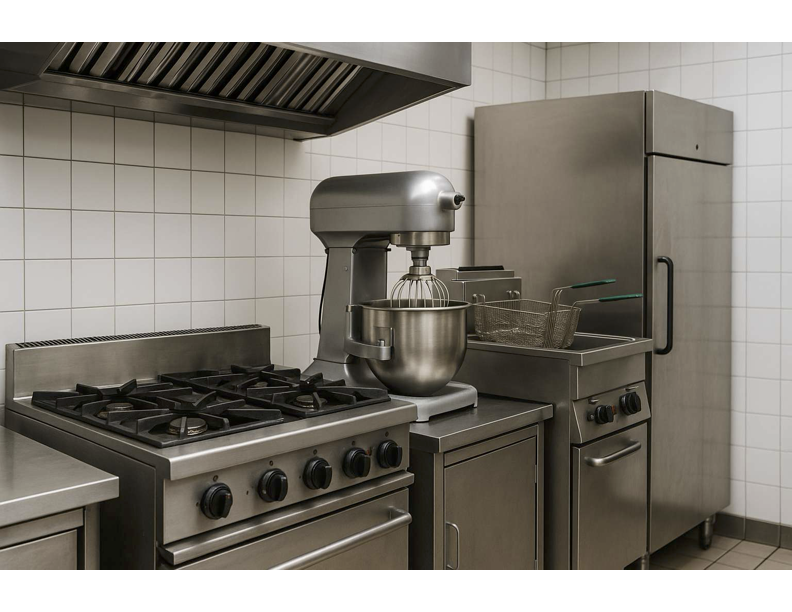If you’ve ever set foot in a commercial kitchen, you know it’s not just a bigger version of your home setup. It’s a high-speed, high-pressure environment where consistency, safety, and efficiency are non-negotiable. And at the center of it all? Industrial-grade equipment.
This isn’t about flashy gadgets. It’s about tools built to survive brutal hours, constant use, and demanding chefs. Let’s break down why industrial-grade gear is essential—and why cutting corners on equipment is a recipe for failure.
1. Built for Volume, Not Occasional Use
A residential oven might cook dinner a few nights a week. An industrial oven might crank out 300 meals in a single lunch service. Same goes for mixers, fryers, and refrigeration units. Commercial-grade equipment is designed to operate continuously without overheating, breaking down, or losing performance. This matters when the ticket printer doesn’t stop and customers expect their food now.
2. Speed = Survival
Time is money in any business, but in food service, it’s everything. Industrial blenders can pulverize sauces in seconds. Commercial dishwashers clean hundreds of dishes in a few minutes. A six-burner gas range keeps multiple stations moving simultaneously. This speed keeps the kitchen flowing—and prevents bottlenecks that kill productivity and customer satisfaction.
3. Precision and Consistency
Every dish must come out the same—day in, day out. That requires equipment that heats evenly, maintains temperature, and responds quickly. Commercial-grade fryers, ovens, and grills are engineered for precision. They don’t guess; they deliver. And in a world where one bad plate can tank a Yelp rating, that consistency is gold.
4. Durability You Can Count On
Industrial equipment isn’t just heavier—it’s tougher. It’s made of stainless steel and heavy-duty components that can take a beating from heat, moisture, grease, and the occasional flying pan. Yes, it's more expensive up front, but the return on investment is real. Fewer breakdowns. Longer lifespan. Less downtime.
5. Meets Code, Keeps You Compliant
Health and safety codes are strict—and they should be. Industrial equipment is designed with those standards in mind. Easy-to-clean surfaces, fire-suppression systems, ventilation hoods, NSF certifications—it’s all part of staying compliant and keeping your kitchen open for business.
6. Ergonomics and Workflow
Efficiency isn’t just about speed—it’s about smart design. Industrial kitchen equipment is built for workflow. Items are sized to fit line setups. Storage units keep ingredients within arm’s reach. Fryers, flat tops, steamers—they’re arranged to keep staff moving without crashing into each other. That reduces stress and injuries and keeps the service tight.
Bottom Line
If you're running or planning a commercial kitchen, industrial-grade equipment isn’t a luxury—it’s a necessity. It’s the difference between a kitchen that runs like a machine and one that grinds to a halt when the pressure hits.
Don’t just think about what you need today—think about the volume, demands, and expectations five years down the line. Then build your kitchen to meet them.
Because in this business, the equipment you choose is the foundation you stand on. Make sure it’s solid.

